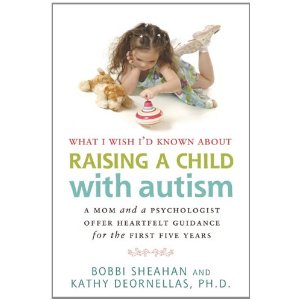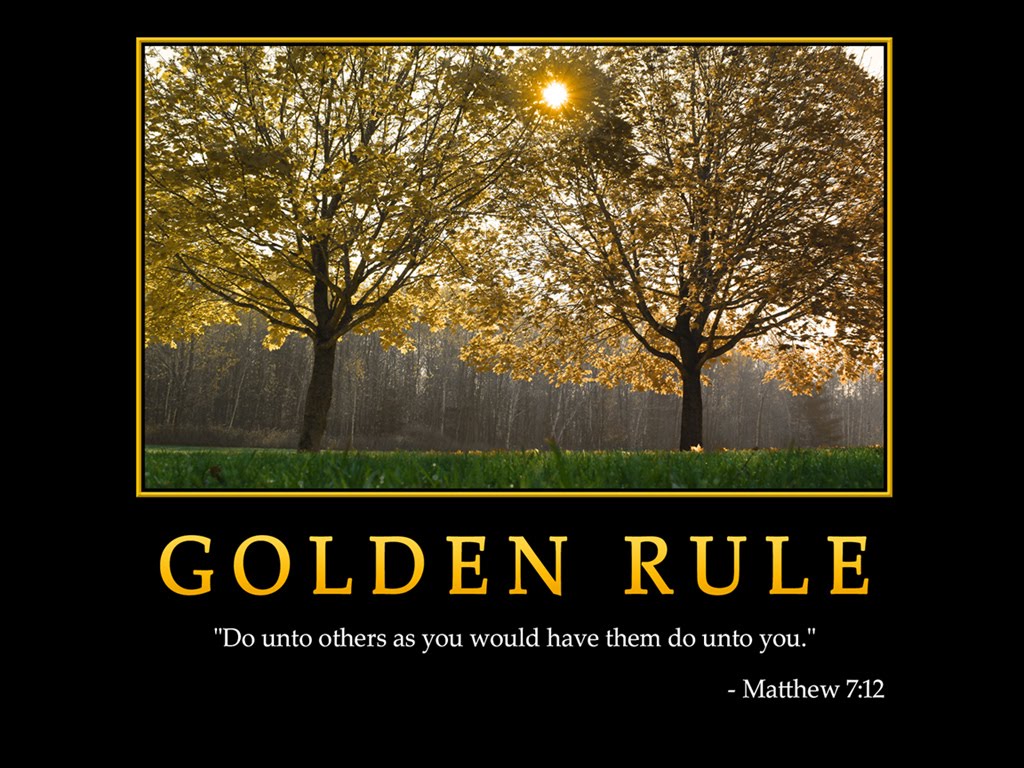
The Golden Rule: Simple, Ancient, and Effective.
From dictionary.com:
ci·vil·i·ty
noun, plural -ties.
1.courtesy; politeness.
2.a polite action or expression: an exchange of civilities.
3.Archaic . civilization; culture; good breeding.
Synonyms
1. affability, amiability, manners, tact.
A few weeks ago, I wrote a post, “Silencing Ourselves: A Plea for Civility in the ASD Community“. Shortly thereafter, Ali Dyer, Social Media Coordinator at Autism Speaks, wrote a response to my post, “‘Silencing Ourselves: A Plea for Civility in the ASD Community’ – A Sister’s Response” which was featured on the Autism Speaks Official Blog. I read a comment on her post (and thereby mine) which has been bothering me. And, while generally I do not take exception to honest criticism in blog posts, the tone and sentiments expressed in the somewhat critical response concern me. And, although I do not wish to open the proverbial hornet’s nest, I feel the need to respond in kind. Not because someone dared to disagree with me. I’m not perfect. It happens. But because this discussion has broader implications for the general nature of discourse in the autism spectrum/special needs parenting community. And, sadly, I don’t believe that the views expressed in the comment are hers alone.
The criticism focused on three issues: our (presumably both my and Ms. Dyer’s) use of non-people first terminology, an opinion of Ms. Dyer’s writing and the implications of such for her as a social media coordinator, and an opinion that my desire for civility in the autism spectrum community is simplistic and unrealistic. I will address my concerns in this order.
In her comments, the respondent stated that our usage of non “people first” terminology “simply is not enlightened”. Because I have shared my views on this subject in a previous post, “Reply to a Disgruntled Reader“, I will refrain from repeating myself ad nauseam.However, I will say this: the statement, “People are not autistic. Behaviors are” has become the rallying cry of those endorsing people-first language with regard to autism. In my opinion, it is one of those things that sounds very nice and correct but, on further examination, isn’t the only lens by which to view the subject. There are some perfectly nice, caring people out there who see it quite differently. People who are no more insensitive than those who attempt to advance the “people first” movement. People who see the use of the word “autistic” as more about embracing the whole self rather than as a dismissive label. A friend of mine, “E”, in the autism blogosphere recently began writing her own blog,The Third Glance. ”E” is a PH.D student and an insightful thinker and writer. She also happens to be autistic. Here is what she has to say:
I am Autistic. I am a nerd. I am asexual. I think often times, what people’s objection to describing someone as “autistic” stems from, is their own personal, stereotyped version of “autism” (or how they believe the rest of the world views it, even if that is not their own personal view) – the negative horrible thing that it isn’t, but that (unfortunately) immediately comes to many people’s minds when they hear that word. And they don’t want their kid, or themselves, to be seen by that view, so they try to separate their child from the stigma. I TOTALLY understand that – you want people to see your child as the wonderful, kind, awesome person s/he is, and not by the awful assumptions that society makes that don’t accurately portray him/her. But by separating the person from the person’s existence, you are destroying the person inside. It’s not that when your child has a triumph it is in spite of the Autism, and when they have a setback it is because of the Autism, but rather, that when your child has a triumph, it, too, is due to his or her Autistic mind, figuring out and processing the world and understanding and acting in a way that you approve or appreciate. As another FANTASTIC Autistic blogger, AutisticSpeaks (http://autisticspeaks.wordpress.com/) says, “Not despite autism, but because of it”.
But here’s the thing. Everything about me stems from being Autistic. The way I think, feel, and interact with the world. The fact that I’m a PhD student, AND the fact that I stim in my office and am pretty terrible at socializing with my age group (who, by the way, are all undergraduates). There’s nothing about me that is a “person first” and “autistic” second. To be Autistic IS TO BE A UNIQUE HUMAN, whose brain works a little differently from most other humans. I’m also asexual. I am not “a person with asexuality”. Nor is any gay person “a person with gayness”. That trait, asexuality, is as much a part of me as my Autism, and has shaped my thoughts, ideas, and the way I interact with the world as well. The two are undoubtedly linked (along with all of my other traits that make me myself – Autism =/= Asexual and vice versa, it just happens to be the case for me), but I digress…
To ME (and I stress that this is MY opinion, not anyone else’s, though I’m sure there are people who agree, or have similar feelings, I only speak for myself): the phrase “person with Autism” suggests that Autism makes me less than human. I am NOT less than human. I’m not a person who is less than other humans because I’m afflicted by a terrible disease. Sure, being Autistic means it’s harder for me to do some things than it is for you. But it’s also easier for me to do many things, things that I find to be of great value and absolutely love to do – things that make me, ME. Take away my Autism, and you take away the stigma, sure, but you also take away everything in my life that makes me into the person I am. And that is why I, personally, identify as “an Autistic person”, not a “person with Autism”.
Also, I did just want to make it clear that I am *not* looking for a fight here – I’m actually simply responding with how I personally feel. That doesn’t negate anyone else’s opinion who happens to feel differently. Individuals who prefer to identify as “people with Autism” deserve just as much respect of their views. I would never force them to identify as “Autistic people”, and I expect the same to myself. But as an Autistic person who (sometimes) has the means of communication to express my views and opinions, I simply wanted to speak to that particular issue, as it is very relevant to my life.
I think that those who believe that the “people first” view of autism terminology is a closed case might be surprised to find that there are a lot of decent people out there who disagree . And, while – like “E” – I do not think others will or even should see it the same way, I hope that those of us who see it differently will not continually be accused of being insensitive or unenlightened. It is simply a matter of perspective.
Regarding her post, the response to Ms. Dyer stated:
Your post was touching in what you shared about your brother and we all have touching stories of sacrifice to share but you did not really not address the blog post you referred to other than the autistic/autism issue. You kind of side-stepped that and told your own story. Like I said, your story was meaningful, but that was not the promise of your post title. As a social media manager, you know focus is important in blogging and you have to deliver on the promise of a subject line or title.
A blog – by its very definition – is a personal journal. A blog post contains the thoughts, feelings, and experiences of its writer. Ms. Dyer, though she works as a social media manager for Autism Speaks, is allowed to have her own thoughts and responses to what she reads. The biographical information stated that Ms. Dyer was functioning as a guest blogger. She was not participating in a structured debate or even writing in her official capacity as an employee of Autism Speaks. To chide her with regard to her professional status seems disingenuous to me. It appears to me that the true objection is to her agreement of ideas expressed in my post rather than what was perceived by the respondent to be her improperly focused blog post. I detected annoyance with her personal story (“and we all have touching stories of sacrifice to share”). My question is…why? Because she does not share the same opinions as the respondent, does that make her personal experience somehow irrelevant or redundant in the autism blogosphere? While I sincerely hope not, it has been my experience that it does.
I do not personally know Ms. Dyer, nor have I interacted with her online in any way other than a compliment to her post, thanking her for linking to mine. And, while I’m sure that she is a perfectly nice person, my intention is not to jump to specifically her defense. My concern is what I perceive to be an intolerant environment in the ASD community. Intolerant in that there appears to be only one accepted way of seeing our issues. Intolerant in that there appears to be a greater concern for correcting others’ perceived verbal missteps than for engaging in a useful sharing of resources and information. In the past few months, I have seen a ratcheting up of personal political beliefs interspersed with autism advocacy to the point of implying that those who have a different political opinion are somehow less worthy as human beings — and possibly not as deserving of having a voice in our community. It begs the question: Should an individual’s liberalism, conservatism, religiosity or lack thereof be cause for dismissal from the autism community? Because, as I understand it, we have a common cause – the educational, medical, and social well-being of children and adult individuals with autism spectrum disorders and their families. That’s why we’re all here, right?
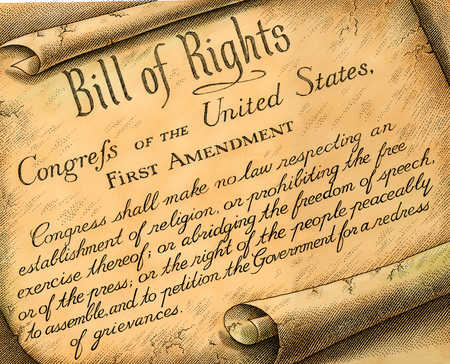 I am not suggesting that individuals in the ASD community should not be allowed to express their political views or endorse policies and legislation that benefit the same . I’m a writer, a teacher, and a librarian. This makes me quite fond of the First Amendment. What I am not so fond of is people implying that simply holding a differing opinion should negate the respectful treatment of those who disagree. For I happen to believe that both politically liberal and conservative parents, religious and non-religious parents, and biomedical enthusiasts and advocates of standard methods of autism treatment all deserve to be treated respectfully – even during inevitable and sometimes necessary times of disagreement. It is one thing to attack a viewpoint. It is quite another to attack an individual holding it.
I am not suggesting that individuals in the ASD community should not be allowed to express their political views or endorse policies and legislation that benefit the same . I’m a writer, a teacher, and a librarian. This makes me quite fond of the First Amendment. What I am not so fond of is people implying that simply holding a differing opinion should negate the respectful treatment of those who disagree. For I happen to believe that both politically liberal and conservative parents, religious and non-religious parents, and biomedical enthusiasts and advocates of standard methods of autism treatment all deserve to be treated respectfully – even during inevitable and sometimes necessary times of disagreement. It is one thing to attack a viewpoint. It is quite another to attack an individual holding it.
Perhaps it is naive of me to think there is enough room in our community for differing perspectives. If it is, then I prefer naiveté over cynicism.
And my supposed naiveté is truly the main focus of the respondent’s displeasure. She compared my post to the oft-derided wail of Rodney King’s “Why can’t we all just get along?” She stated:
“…I think it’s too simple to just wonder why it [division in the autism community] exists and hope the band-aid of good will will cover it. There are very good reasons for the visceral way people respond to differences that bear examining. First of all, we can’t just all get along because the autism community is VERY diverse. Our needs are different. Our belief systems are different. There is no big umbrella covering us all.”
I am aware that we are a diverse community with diverse needs. Every community is. But she mistook what I requested from our community – civility – and confused it with a request for uniformity. She demonstrated this by referring to my objection to cruelty and incivility as an objection to “division in the autism community”. At no point in my post did I call for a hive mind mentality for the autism community. I called for civility. Simple human courtesy and a respectful approach to those with whom one disagrees.
We spend a lot of time in the autism community discussing bullying and its effects upon our children. We push for strong anti-bullying measures in our schools. And we discuss at length the need for tolerance and diversity. Yet, as a community, I don’t think I am overstepping in saying that we don’t practice what we preach.
I am a blogger. A few months ago, I deliberately created a blog account and set up social networking accounts to network and market it. Clearly, I am fair game for those who wish to attack my views. I put myself out there, willingly engaged in public debate, and comment frequently on others who choose to do the same. And while mean comments hurt me as much as anyone else, it is hard to argue that I didn’t know exactly what I was signing up for.
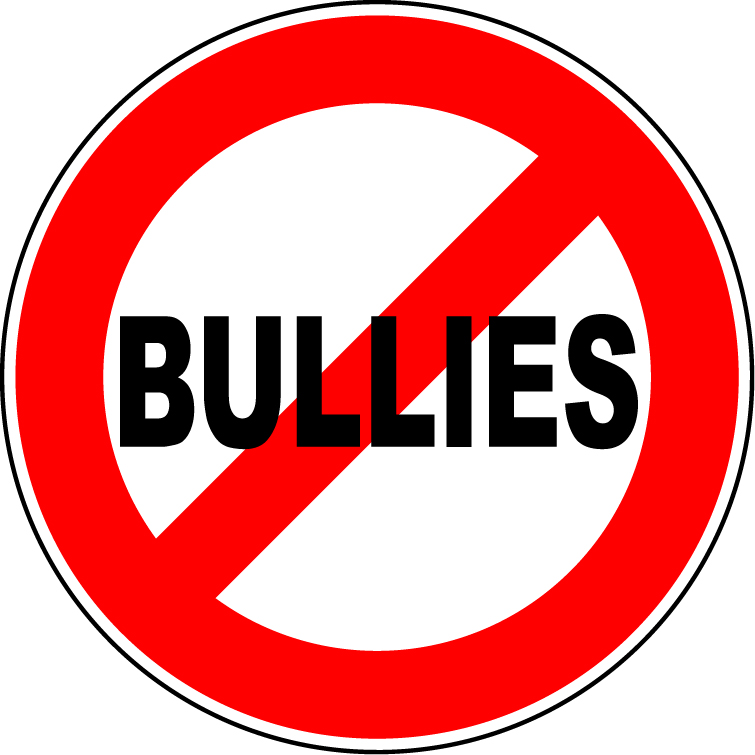 Contrast me with an innocent parent who unwittingly comes across an autism blog or forum, asking for advice or sharing his experience. That parent mentions ABA therapy or gluten-free cookie recipes or the like and all hell breaks loose. Suddenly, this parent is accused of being stupid, a cult member, subjecting his beloved child to “what amounts to dog training”, etc. And all that parent sought to do was find others like him, parents doing the best they can to provide for the children they so desperately love. And maybe his choices aren’t yours. But I happen to find little difference between the snarky self-satisfaction of the “cool kids” of ASD parenting, sitting at the “cool table” in the autism forum, tossing out verbal jabs and raising an eyebrow at the hapless newcomer who dares to approach un-vetted. I don’t know what others call it, but where I come from it’s called bullying. And I don’t like bullying in any of its forms.
Contrast me with an innocent parent who unwittingly comes across an autism blog or forum, asking for advice or sharing his experience. That parent mentions ABA therapy or gluten-free cookie recipes or the like and all hell breaks loose. Suddenly, this parent is accused of being stupid, a cult member, subjecting his beloved child to “what amounts to dog training”, etc. And all that parent sought to do was find others like him, parents doing the best they can to provide for the children they so desperately love. And maybe his choices aren’t yours. But I happen to find little difference between the snarky self-satisfaction of the “cool kids” of ASD parenting, sitting at the “cool table” in the autism forum, tossing out verbal jabs and raising an eyebrow at the hapless newcomer who dares to approach un-vetted. I don’t know what others call it, but where I come from it’s called bullying. And I don’t like bullying in any of its forms.
Nor do I understand the purpose of it in our community. Even for those who hold the most passionate views for or against a particular course of therapy, treatment, or educational approach, I would think that the goal would be to enlighten others to one’s point of view and encourage them to adopt it. If one instead chooses to insult, demean, or imply a lesser degree of parental dedication, all he will accomplish is the alienation of yet another possible convert to his position. This seems contradictory to one’s purpose, does it not? At least one would hope that purpose was a well-intentioned one. If a mother enters an autism forum or blog commentary seeking information on allergy testing for biomedical treatment, wouldn’t one be more likely to sway her to his side by politely sharing a link about the efficacy of such testing than accusing her of stupidity and child torture? Rudeness is unmistakable – in person and online. I submit that there are a lot of obnoxious online personas who would never dream of conducting themselves similarly in person. And I don’t know about everyone else, but – once I identify an individual as rude – I no longer seek her counsel. In my way of thinking, incivility is not only unenlightened, it is, quite simply, ineffective.
No, uniformity is not what I’m calling for. I am aware that there are changes that need to be made in education, with regard to insurance, in legislation, and public awareness. I certainly think that we should all be free and encouraged to opine to our heart’s content. To bring about needed reform and to push for what won’t happen without our insistence. But I do not believe that other parents of autistic children are our adversaries. I don’t believe that attacking one another for our approaches to treatment, therapy, education – and even political beliefs – is acceptable or noble in any way.
For, at the end of the day, yes, we are all under the same umbrella. We are under the umbrella of unconditional love for our children, worry for their futures, fear for the day that will come when we are no longer around to advocate for and protect them, and the haunting fear that perhaps the choices we have made for them weren’t the best. And, though – as the respondent pointed out – our individual struggles and journeys may be markedly different, we are all really doing the best we can. We have much to share with one another. Many worthwhile stories to be told. And, in the sharing of our individual experiences and viewpoints, we have much to gain in civility –and little to nothing in antagonism and cruelty. The Golden Rule has existed since antiquity – in every culture- – in some form for a reason. It works. And it always will.
“Civility costs nothing, and buys everything.”
Mary Wortley Montagu
If you liked this post, you might also enjoy “The Third Glance” by “E”.
*The comments cited here follow Ali Dyer’s post, in the “Comments” section – dated March 6th.
Like this:
Like Loading...
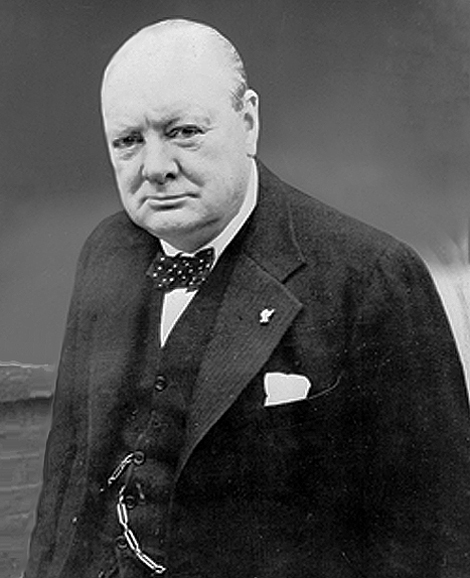 A year ago, we took Callum to see a developmental pediatrician. And, because some of his symptoms were somewhat atypical, the doctor said he was hoping he might just be delayed. He felt there was a chance that it might not prove to be classical autism and asked us to return when our son turned three. We continued speech, occupational, and physical therapy and waited it out.
A year ago, we took Callum to see a developmental pediatrician. And, because some of his symptoms were somewhat atypical, the doctor said he was hoping he might just be delayed. He felt there was a chance that it might not prove to be classical autism and asked us to return when our son turned three. We continued speech, occupational, and physical therapy and waited it out.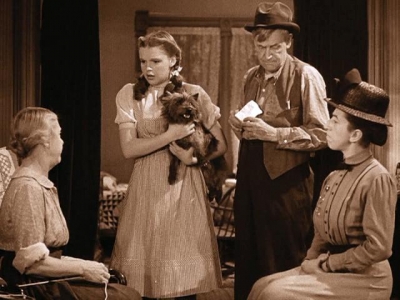 (And all of these people making up the staff of the University of Florida at Shands Outpatient Lab, Children’s Medical Services branch, and Social Services branch restored my admittedly shaky faith in humanity. So a big “Thank you” to them. You folks rock. And a loud “Shame on you!” to Healthease of Florida. Like Aunt Em, I can’t say what I think of you.)
(And all of these people making up the staff of the University of Florida at Shands Outpatient Lab, Children’s Medical Services branch, and Social Services branch restored my admittedly shaky faith in humanity. So a big “Thank you” to them. You folks rock. And a loud “Shame on you!” to Healthease of Florida. Like Aunt Em, I can’t say what I think of you.)
 I am not suggesting that individuals in the ASD community should not be allowed to express their political views or endorse policies and legislation that benefit the same . I’m a writer, a teacher, and a librarian. This makes me quite fond of the First Amendment. What I am not so fond of is people implying that simply holding a differing opinion should negate the respectful treatment of those who disagree. For I happen to believe that both politically liberal and conservative parents, religious and non-religious parents, and biomedical enthusiasts and advocates of standard methods of autism treatment all deserve to be treated respectfully – even during inevitable and sometimes necessary times of disagreement. It is one thing to attack a viewpoint. It is quite another to attack an individual holding it.
I am not suggesting that individuals in the ASD community should not be allowed to express their political views or endorse policies and legislation that benefit the same . I’m a writer, a teacher, and a librarian. This makes me quite fond of the First Amendment. What I am not so fond of is people implying that simply holding a differing opinion should negate the respectful treatment of those who disagree. For I happen to believe that both politically liberal and conservative parents, religious and non-religious parents, and biomedical enthusiasts and advocates of standard methods of autism treatment all deserve to be treated respectfully – even during inevitable and sometimes necessary times of disagreement. It is one thing to attack a viewpoint. It is quite another to attack an individual holding it.  Contrast me with an innocent parent who unwittingly comes across an autism blog or forum, asking for advice or sharing his experience. That parent mentions ABA therapy or gluten-free cookie recipes or the like and all hell breaks loose. Suddenly, this parent is accused of being stupid, a cult member, subjecting his beloved child to “what amounts to dog training”, etc. And all that parent sought to do was find others like him, parents doing the best they can to provide for the children they so desperately love. And maybe his choices aren’t yours. But I happen to find little difference between the snarky self-satisfaction of the “cool kids” of ASD parenting, sitting at the “cool table” in the autism forum, tossing out verbal jabs and raising an eyebrow at the hapless newcomer who dares to approach un-vetted. I don’t know what others call it, but where I come from it’s called bullying. And I don’t like bullying in any of its forms.
Contrast me with an innocent parent who unwittingly comes across an autism blog or forum, asking for advice or sharing his experience. That parent mentions ABA therapy or gluten-free cookie recipes or the like and all hell breaks loose. Suddenly, this parent is accused of being stupid, a cult member, subjecting his beloved child to “what amounts to dog training”, etc. And all that parent sought to do was find others like him, parents doing the best they can to provide for the children they so desperately love. And maybe his choices aren’t yours. But I happen to find little difference between the snarky self-satisfaction of the “cool kids” of ASD parenting, sitting at the “cool table” in the autism forum, tossing out verbal jabs and raising an eyebrow at the hapless newcomer who dares to approach un-vetted. I don’t know what others call it, but where I come from it’s called bullying. And I don’t like bullying in any of its forms.